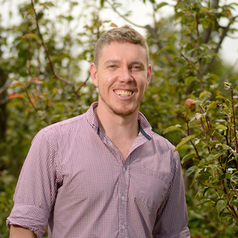
Insect Pest Programme
Human health and livelihoods often intersect with the activities of insects. Using a foundation in insect behaviour, ecology and physiology, Prof. Weldon's research aims to address these interactions, whether negative or beneficial, with a focus on flies but also insect pests of horticulture. By doing so, he contributes to improved and sustainable production of nutritious food and to improve plant, human and animal health and wellbeing.
Prof. Weldon and his students pursue projects on the traits that make fruit flies destructive and invasive pests; the behaviour and movement of fruit flies that damage our fruit for consumption and exports; the biology and management of mosquitoes and other blood-feeding flies that affect human and animal health; and the use of flies for bioconversion of organic waste to promote a sustainable, circular economy. For example, collaborative research pursued over the past 18 months has developed practical interventions that can be used by hotels to reduce mosquito abundance, the nuisance of mosquito bites and the potential spread of diseases. Such practical interventions will improve the experience of hotel guests and encourage tourism.
Prof. Weldon and his group have also done research on how body condition and environment affect fruit fly attraction to lures and movement in the field; the diversity, abundance, and damage caused by thrips in avocado and macadamia orchards; and how to improve surveillance of invasive pests of citrus. All this work is being done in partnership with South African horticulture industries as well as international organisations to improve the productivity and competitiveness of South African horticulture.


